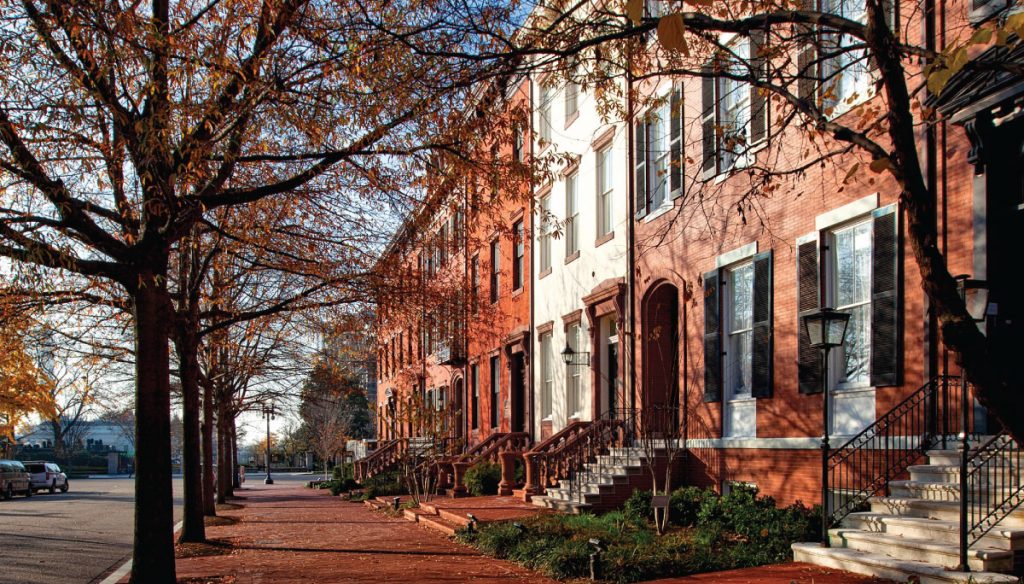Are you condo hunting for the first time? If so, you’ll likely encounter some unfamiliar concepts along the way. A term that often causes confusion among first-time buyers is “status certificate.” While you might not know what this document is, obtaining one for the condo you’re thinking of purchasing is crucial.
Put simply, a status certificate provides critical information about a unit and the financial health of the condo corporation that oversees it. With the help of a legal expert, you can use it to determine whether a building is well managed — before you ever sign on the dotted line.
If you’re searching for the right condo, here’s what you’ll need to know about its status certificate…
What status certificates contain
When you receive your status certificate, it will come as part of a packet pertaining to the unit you’re considering. Inside, you can expect to find financial statements, information about maintenance fees, and disclosures related to any relevant legal issues or lawsuits. It should also contain the condo corporation’s budget and the minutes from the board’s most recent committee meeting.
In addition to the info listed above, here are some of the specific things to look for in your status certificate package.
Failing to review a condo building’s status certificate is a crucial mistake to make when buying a new condo, but not the only one. Read through our article on the Top 5 Condo Buying Mistakes here to find out the rest.
The declaration, bylaws, and rules
A condo declaration is crucial to the formation of a condominium corporation. Essentially, it’s a set of documents that contain basic information about a particular building. Examples include the boundaries of units, and the amount that each owner will pay for common elements (expressed as a percentage of the overall budget). The declaration is one of the two legal documents that are necessary to create a condo corporation when a new building is registered with the local Land Registry Office.
Bylaws lay out how a building governs itself, which include details like the number of directors on the condo building’s board, the common board meeting procedures, and how the affairs of the condo corporation are conducted. These are mostly administrative details but are useful for new condo owners to know about nonetheless.
The condo building’s rules relate to what condo unit owners can and can’t do. These are things like whether or not owners are allowed to have pets, what the noise regulations are, whether you can have a propane-powered barbeque on your patio, and what the allotment policies surrounding parking spaces are.
Downsizing from a house to a condo isn’t as simple as you might think. If you’re considering scaling down from your house and moving into a condo, read through our related posts below for our advice.
- Moving From A House To A Condo: 5 Things To Know
- 5 Downsizing Tips For Luxury Buyers
- 5 Storage Tips For Condo Owners
The most recent reserve fund study
A condo’s reserve fund contains money that’s been set aside for unexpected repairs and replacements in common areas. A condo building’s reserve fund is a separate account from the condo’s operating fund and is typically set up with a financial institution such as a bank, a loan and trust corporation, or a credit union.
To determine how much should be in a given fund, a specialist must complete a study within the first year of a building’s incorporation (and every three years after that).
As a potential new condo unit owner, you’ll want to see what’s in a building’s reserve fund before you invest in a unit there, as a portion of your monthly building expenses will be deposited directly into the reserve fund, which is there to ensure your condo corporation has enough money to fund any future repairs.
That’s why your status certificate will contain the results of the building’s most recent report, so make sure you keep an eye out for that number when inspecting your certificate.
Still on the search for that perfect new condo? Have a look through the properties currently up for sale on Our Listings page here to see if you can’t find what you’re looking for there.
Information about special assessments
A special assessment is a financial contribution that unit owners must pay in addition to their monthly fees. Special assessment fees are charges that a condo building’s board of directors can charge without receiving permission from individual condo unit owners first.
These charges may be levied by a board to cover a specific cost, such as an unforeseen expense or a legal judgment against the building. Within your status certificate, you’ll find information about existing special assessments, if there are any.
It’s important to note that for most condo associations, homeowners that neglect to pay the special assessments fees risk the same consequences they would if they neglected to pay their common element fees too.
Along with status certificates, there are a lot of other particular details that make up the difference between living in a condo and living in a different style of home. Find out more about what you need to know before moving into a condo here:
- What Do Condo Fees Cover?
- What To Know About Condo Renovations
- Condo Inspections: How They’re Different
- Condo Insurance: Here’s What You Should Know
Why you need to obtain a certificate
The entire idea behind carefully reviewing your status certificate is so that you can get an insight into how well your prospective new condo building is being run. Poor building management could easily lead to extra costs, future maintenance problems, and even potential issues when you attempt to exercise your rights as a condo owner.
Fortunately, you should be able to spot some of the most common red flags in your status certificate. These include a poorly-balanced budget, a reserve fund containing an insufficient amount, or pending litigation (which may or may not be a bad sign, depending on the circumstances).
Of course, it’s also important to ensure that any building you’re considering will suit your lifestyle. For this reason, you should read the rules and bylaws within your certificate carefully. If you’ve got several pets at home that won’t be allowed to come with you, or you love to barbeque but aren’t allowed one on your deck space, these could be potentially detrimental lifestyle-related obstacles outlined in your status certificate.
How to get a status certificate
To obtain a copy of a status certificate for a unit, simply submit a written request to the condo corporation along with the required fee ($100). In Toronto, a condo unit’s seller will often be willing to pay this amount for you, as this aspect of your purchase is negotiable. Once requested, it should only take 10 days for you to receive your status certificate document.
If you plan on buying the condo after you’ve reviewed the status certificate, you’ll have a limited amount of time to review your certificate before signing your Agreement of Purchase and Sale — typically 48 to 72 hours. Fortunately, your agent may be able to negotiate for more time on your behalf if need be.
Remember that it’s important to have your legal representative carefully examine your status certificate before your sign your purchase agreement, so make sure you account for enough time for your lawyer to look over the document before moving forward with your purchase.
Obtaining and reviewing your status certificate is just one crucial step in the process of successfully purchasing a condo. To ensure your next condo purchase is smooth and problem-free from start to finish, it’s always recommended that you work with an experienced local real estate professional with condo expertise.
Are you not only buying your first condo in Toronto but buying your first property too? While buying a home for the first time can feel daunting, the process feels much more straightforward with the right guidance. Read through our home buying guides designed especially for first-time buyers here for more information.
- Buying Your First Home In Toronto
- Buying Your First Home? Here’s What You Should Know
- The Complete Millennial Condo Buyer’s Guide
Looking to invest downtown? We know the downtown Toronto condo market! For 40 years, our clients have trusted us to minimize risk, offer unbiased opinions, and ensure their best interests are served. Contact us today to talk about your needs, by emailing us at niels@christensengroup.ca or calling us at 416-441-2888 ext. 772.





